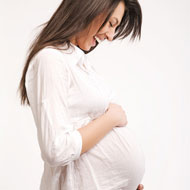- Baby care
- Baby Crying
- Baby Feeding
- Baby Growth
- Baby Language
- Baby Name
- Baby Potty Training
- Baby Safety
- Baby Shower
- Baby Sleep
- Baby Teething
- Bathing a Baby
- Early Pregnancy Signs
- Late Pregnancy
- Miscarriage
- Molar Pregnancy
- Post Pregnancy
- Postpartum Depression
- Pre Pregnancy
- pregnancy care
- Pregnancy Conditions
- Pregnancy Diet
- Pregnancy Due Date
- Pregnancy Exercise
- Pregnancy Heartburn
- Pregnancy Sex
- Pregnancy Sleep
- Pregnancy Stages
- Pregnancy Stretch Marks
- Pregnancy Style and Fashion
- Preschooler
- Second Pregnancy
- Teen Pregnancy
- Toddler Activities
- Toddler Behavior
- Toddler Discipline
- Toddler Food
- Toddler Illness and Injuries
- Toddler Speech
- Twin Pregnancy
The Pros and Cons of Seafood During Pregnancy

When you are eating for two during your pregnancy, you have to take even more care than before about what you feed yourself and your baby. Fresh fruit and vegetables, pulses, whole grains, and lean meats that are high in vitamins, minerals, iron and calcium are essential for your baby's development and overall health. When it comes to eating seafood during your pregnancy there is some debate about what is safe to eat and what is not. Most doctors agree that eating seafood especially fish is a good idea when you are pregnant. However, problems crop up depending on the type of seafood, the frequency of consumption and the quantity eaten.
The main concern when it comes to eating fish during pregnancy is related to the toxins, pollutants and mercury levels found in some types of fish. Oily fish such as tuna and salmon have high levels of mercury that are connected with birth defects such as attention and concentration problems, delayed milestones and cognitive difficulties in children. On the other hand, the omega-3 fatty acids found in such fish benefit fetal brain development and mental abilities and cutting them totally out of your diet is not recommended either. As a result, pregnant women should stick to a maximum of only two servings of such fish a week.
At all costs, avoid eating raw fish or seafood during your pregnancy. Some doctors suggest passing on the sushi or ceviche if you are even trying to get pregnant. This is mainly because of the harmful bacteria, viruses, and parasites that raw seafood may contain. Raw oysters, mussels, tuna or shellfish may contain toxoplasmosis, salmonella and coliform bacteria that are all potentially dangerous to both you and your baby. Other types of seafood that should be avoided include smoked fish and undercooked seafood. Smoking fish is a process carried out to enhance the flavors. However, this also increases the likelihood of the fish carrying listeria – a dangerous bacterium. When pregnant women consume such seafood, the risks of an infection are increased significantly.
While some people insist that the benefits of eating fish and seafood far outweigh the potential risks, others prefer to avoid all seafood during pregnancy. Keep in mind that any type of food poisoning may weaken you considerably when you are pregnant and pose a threat to the baby's health. When you are sick with food poisoning, you end up reducing the amount of nutrients your baby receives as a result of side effects such as nausea, loss of appetite and diarrhea. Regular medication used to treat bacterial infections and intestinal worms may not be allowed when you are pregnant and this prolongs your recovery time as well. Whether or not to include seafood in your diet is ultimately a personal decision made after weighing all the pros and cons. If you are still unsure about what seafood is safe to eat during your pregnancy and what types to avoid, it is best to consult with your doctor or mid-wide for more information.
- RSS Feeds -
- All posts
- All comments
- Baby Vaccinations Side Effects Babies need vaccinations and immunizations from some of the deadly diseases
- Foods to Avoid when Trying to Conceive Planning a pregnancy involves maintaining optimum health of both partners, le
- Pros and Cons of Teenage Pregnancy As the problems of teen drug abuse, unsafe sex and alcoholism continue to
- Water Birthing Method Just as the name implies, a water birth is a process where the mother gives b